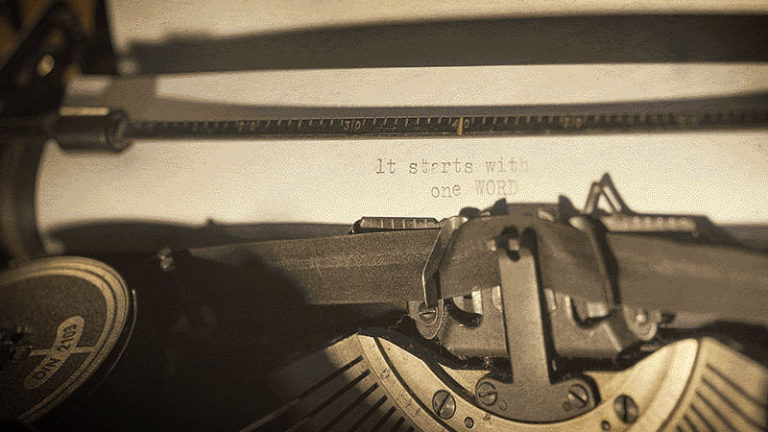Literal Thinking: Tips for Adapting an Unproduced Screenplay Into an Acclaimed Novel

How a BAFTA-nominated scriptwriter turned a couple of well-received but unproduced scripts into two acclaimed novels.
By: Paul Mendelson
“80,000 words! You actually know 80,000 words!”
My seven-year old grandson is impressed. Even when I explain that some of the words are doubles.
“You can actually spell 80,000 words!”
He's on a roll. I don't tell him about spell-check. Do you know how hard it is to impress a seven-year old?
But actually, as I hold copies of my soon-to-be-published novels, with their unsullied covers gleaming, pristine pages as yet unthumbed (and very gracious advance reviews scattered all around), I'm not entirely unimpressed myself. I’m not talking about quality - that's for others to judge. I suppose I'm talking about flexibility. And application.
And luck.
And knowing that when you have a story that burns to be told, there's more than one way to tell it. Or sell it.
I can only speak for my own journey, but I imagine there are some truths that are universal.
A 300-page idea
Can a premise that might sustain for 100 minutes make a novel that can take days to read?
In my arrogance, I thought so.
I had two stories I loved, one for adults and one for kids aged around nine to thirteen. Being a TV-writer, with several hit comedy-series and dramas under my belt, my initial impulse had obviously been to turn them into scripts. And the results were pretty well-received. (The former was a semifinalist in a Screencraft Comedy Contest, the latter a Finalist in the Family Contest. Blacklist.com rated them highly. Producers made kind noises.) But I don’t need to tell you how hard it is to get original scripts off the ground.
It seems so many producers have the courage of other people’s convictions.
‘In the Matter of Isabel’ was inspired by a case I handled when I was a very young and green lawyer – and is probably the reason I am not a very old and grey one now. It tells of a cocky young trainee-solicitor who wants to be a City whiz-kid but is shunted by his boss into the Family department. Divorce after divorce. The ‘Kleenex Files’. He's in despair. Then one day an exotic older woman from Buenos Aires comes in, wanting her son back, snatched by her British ex-husband. All that our unlikely hero is interested in is impressing – perhaps even seducing - this enthralling but vulnerable woman. The case takes a back seat to his desire. He ‘bigs-up’ his credentials and plays her for all she's worth. But then he meets the little boy and everything changes. Yet we begin to wonder exactly who is playing whom.
In movie parlance it's The Graduate meets Kramer v Kramer.
Could this simple but strong idea, with all its comedy and drama and heart, make for an engaging novel?
‘Losing Arthur’ isn't inspired by any events in my life. My single-mum never got so fed up with my imaginary friend that she ‘sealed’ him in a box and mailed him to the distant highlands of Scotland. She never told me that ‘it’ was going to my vanished dad up there but had actually made up the address in her head. And I certainly never set off on any sort of scary journey to find my little pal – and hopefully my father - encountering a world of much more malign and dangerous imaginary beings on the way.
I would have remembered if I had.
Yet I truly believed this could be a story that kids would get as excited about on the page as I had originally imagined they would on screen.
Provided I got those pages right…
A structure that crosses the divide
Can a story that works in film set the pages alight
Before I even considered the writing – or the ‘voice’ – I had to decide if I had a story that worked and not just an idea that enthused me. But of course I had the scripts and I was pretty sure the structure stood-up. Dear lord, I had been through enough drafts! Feedback from colleagues and contests had already helped enormously in this respect.
I'm not saying I was slavish in my devotion to the framework I had devised. I found when I was writing the novel that I sometimes had to let it lead me in directions that it wanted to go. At times these were blind alleys but just as often enticing avenues.
But it was a helluva lot easier than starting from scratch.
And because movies can't just hang about, I knew there was an innate pace and an energy that I didn't want to lose. The beats were there. And they conformed pretty well to the tried and tested patterns.
What's more, because movies are primarily visual, I realised I had already scripted a lot of the ‘pictures’. Ones that I hoped I could make my book-readers see in their minds. Provided, of course, that I described them with sufficient clarity and intensity. In prose that worked on the page and didn't seem like I'd just copied and pasted everything marked ‘action’.
The novels aren't so very different to the scripts in how the stories play out. But what about the characters and the dialogue…?
Talking books
Scriptwriters should be the champions at making books speak
If a scriptwriter’s novels don't contain great dialogue, lines that sparkle and work like gangbusters in every aspect of character-building and storytelling, he or she should be ashamed of themselves.
It's our skill-set. It's what we do.
When I sent an early draft of In the Matter of Isabel to a highly experienced book-editor, an esteemed writer and publisher himself, he called the dialogue dazzling.
He tore the rest of the manuscript apart.
Not the story or structure, which he liked, nor the characters whom he loved and felt were nicely rounded and convincing.
It was the ‘voice’ itself that I hadn't quite found. That distinctive style and tone that tells the reader from page one that they're in the safest of hands. On whatever the journey might be.
I had decided from the start to write the novel in the first person. The ‘I’ here being my cocky young lawyer. And the first line I wrote, which I was hugely pleased with, was ‘I don’t do scenery’. Because I was attempting to ignore the convention that whatever the actual occupation or background or intellect of the narrator of an ‘I’ novel, he still always seems able to write like a dream. My editor hurled me back to the drawing-board, warning me to be far less ‘knowing’ and unconvincingly apologetic. In short, to just tell the story. It was this note that helped me find my ‘voice’, one to which early readers and reviewers thankfully appear to respond.
Movie? What movie?
If it reads like the book of the film, there may never be a film of the book
When I approached my excellent publishers (I went to them direct, which thankfully worked), I never mentioned that the novels had begun life as movie scripts. Why would I?
And after they had read the manuscripts and agreed enthusiastically to publish, they never asked me. Which made me realise the novels worked in their own right.
Surely this has to be the object of the exercise, or you might just as well put fancy covers on your scripts and change the formatting.
A book in the hand is worth…everything.
A novel is what it is – not something that yearns to be something else.
As scriptwriters we all know that what we’re creating are merely blueprints – until someone decides to throw shedloads of money at them (and some terrific catering.)
But for me the joy of a novel is that it exists exactly as what it’s meant to be the moment you type that final word. Even if it's never published it's still like a wonderful painting that may never be bought or an exquisite sculpture that's never sold. A work of creation that is complete in itself. Satisfying of itself. And your very own.
Something to show your grandchildren. (Just don't tell them about spellcheck)
P.S. On the other hand - it's one hell of a way to get that movie made.
Tags
Get Our Screenwriting Newsletter!
Get weekly writing inspiration delivered to your inbox - including industry news, popular articles, and more!






















